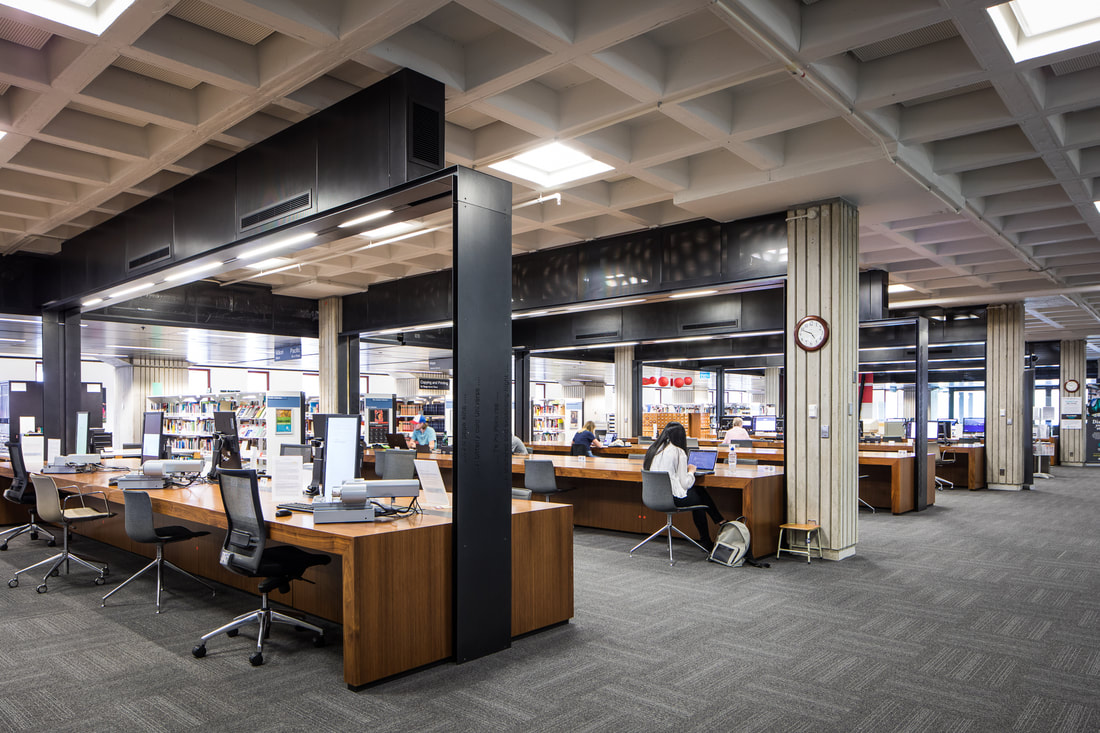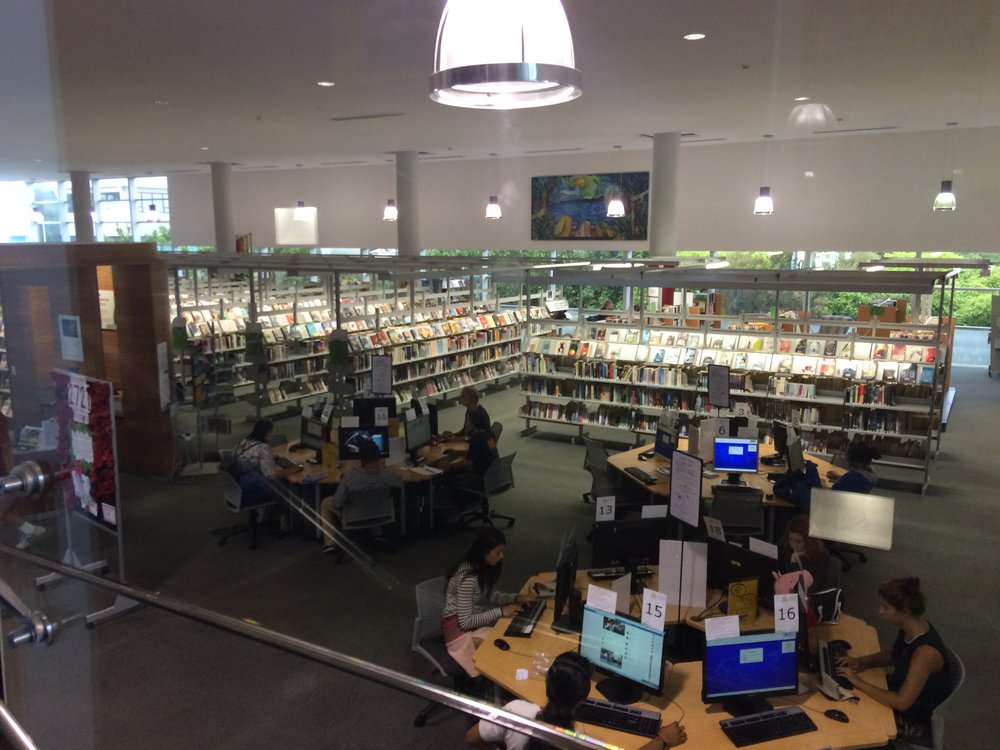| The National Library of New Zealand is planning to re-home books from their overseas published collection to make more room for the growing collections of the Alexander Turnbull Library and our New Zealand and Pacific documentary heritage that they hold in perpetuity. If you’ve been following the news about the weeding taking place at the National Library, you may have some questions about how you are going to access overseas published books. We had some questions in the LIANZA Office* too and we wanted to find out the facts. We teamed up with Public Libraries of New Zealand (PLNZ) to investigate. |
What is “weeding”?
What books are going?
Local supply from well-stocked libraries, new offerings of large back-catalogues, eBooks and audiobooks for the reading public of New Zealand have largely displaced the need for a portion of the National Library’s overseas published books. There are still over 4 million items held in the National Library and they continue to grow their collection each year acquiring 80,000 to 90,000 print and electronic items a year.
The overseas published books aren't unique and are available via interloan from libraries in New Zealand or overseas. Some of the books are being re-homed in libraries in New Zealand. Some are being donated to Rotary and Lions to fund community projects
Remember – these books were never able to be borrowed directly from the National Library – they could be read in the reading room by people who could physically access the building in Wellington, but otherwise these books always had to be obtained by interloan (incurring a charge).
Does that mean all the overseas published books at the National Library are being removed? What about rare books?
Why can’t we keep all the books forever? We might need them!
But what about all the books being burned?!
Updated to add:
The initial the ministerial briefing did mention the possibility of books being destroyed. However they have since update their statement:
Since publishing our initial book lists we have received requests from more than 20 different libraries which include public and specialist libraries. As a result, these books will be retained in the New Zealand library network. We have received orders from prison libraries throughout the country.
We are also working with Rotary and Lions who have taken the remaining books from the first lists for book fairs they will run later in the year — further details to come next month.
When we undertook this project, we anticipated a low demand for these books and thought secure destruction might be the likely outcome.
We’re delighted that since releasing the lists to libraries first and then government and third-party organisations we’ve had a more positive interest in this collection than expected and more options to rehome these books. Rehoming rather than secure destruction is now the most likely outcome.
Isn’t this all a conspiracy to downsize libraries so they can be closed?
How do I access books in the National Library?
Tell me more about interloan?
The Search
| For many people, public libraries are the first port of call to find books and information. Public libraries are a doorway to the world and can connect anyone with collections around the globe. Here at LIANZA, Helen Heath thought she’d look at a random selection of books that will be removed from the National Library’s overseas published collections and follow the process of accessing them via her local public library interloan service with the help of Kat Cuttriss, chair of PLNZ, to see what the experience is like. |
Helen wanted to see if she could find the following books and how much it might cost. The cost of purchasing online from a second-hand retailer has been included for the sake of comparison but you might like to search bricks-and-mortar second-hand bookshops to compare costs. This is what she found:
Book One: Pros & Cons a debater’s handbook. Michael Jacobson, 1987
My local library tells me this book is available from a New Zealand public library and can be interloaned for $15. I also searched for this book online and a second-hand copy is available for USD$3.00.
Book Two: The Social Sciences at a Turning Point? OECD, c1999
My local library can interloan this from three different New Zealand tertiary libraries for $15. It is also available second-hand online for USD$54.00.
Book Three: Global Crises and the Social Sciences: North American Perspectives, 1984
My local library can interloan this from multiple Australian libraries for $15. It is also available second-hand online from $USD17.00.
Book Four: Inside the Whale: Ten Personal Accounts of Social Research, 1978
My local library can interloan this from three different New Zealand tertiary libraries for $15. It is also available second-hand online for around USD$70.00.
Book Five: Collecting Autographs and Manuscripts, Charles Hamilton, 1961
My local library can interloan this from multiple Australian libraries for $15. It is also available second-hand online from $USD3.00.
Book Six: The Bermuda Triangle, Charles Berlitz, 1975
This is actually held at my local public library in Kapiti at no cost to me, easy-peasy! It is also available second-hand online from $USD2.00.
The Take-away
People outside of Wellington have been borrowing books from the National Library (and other libraries) via interloan for many years. Some more eclectic and historic titles may now have modest costs involved for Wellington-based researchers to obtain them from outside the National Library via interloan. Charges vary from library to library.
Many, many international titles are available via interloan through your public library. The majority should be available from New Zealand or Australian libraries for a limited cost. Some may need to be loaned from libraries further afield. Some books may be cheaper to purchase second-hand.
If you are a researcher affiliated with a university it may be even easier to interloan more eclectic and historic titles through your university library and it’s usually free unless you’ve requested an urgent interloan. If you are an independent researcher, you may want to think about paying to be affiliated to a tertiary institution. You should definitely be claiming any interloan costs as a business expense.
Helen is an alumnus of Victoria University of Wellington, so she can become an alumni member of their library. With that, she can get access to selected online resources and is able to borrow from their print collections for a fee of $100 per annum. That’s the average cost of 3-4 new books or 6-7 interloans. If you are serious about research this is a good option and can also be claimed as a business expense, check with your old university.
Do go and make use of your local public libraries, they really are your doorway to the world and your friendly librarians are there to help you find the information you need.




 RSS Feed
RSS Feed